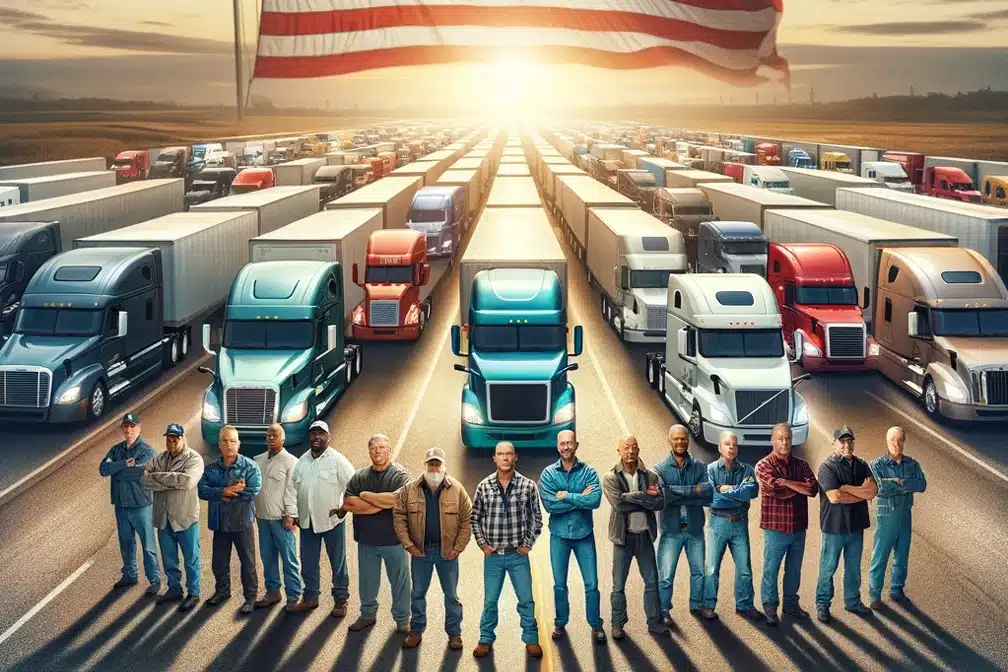Connell High School in Connell, Washington, has formally petitioned the FMCSA to allow students under 18 to obtain commercial learner's permits (CLPs).
Continue Reading
May 19, 2024 12:22 pm

According to this regulation, which mirrors California’s controversial AB 5 legislation, it threatens the established method of employing independent owner-operators within the transportation sector. As this issue evolves, its implications for truckers and the industry at large are significant, necessitating a more careful look at facts and possible outcomes.
The CRA is a legislative body that enables Congress to examine and potentially overturn new regulatory legislation. The resolution introduced by Kiley and Cassidy will require the support of both houses of Congress and the president’s signature. If the president vetoes the bill, a two-thirds majority in both houses will be required to overturn the veto.
The House Committee on Education and the Workforce’s Subcommittee on Labor, Employment, and Training, led by Representative Ken Buck, has submitted to Congress. It wants to overturn the DOL’s rule, inspired by California’s AB 5, which could destroy the lives of millions of independent contractors throughout the nation, limiting their flexibility and entrepreneurial possibilities.
AB 5, which went into effect in California in 2019, has been a controversial piece of legislation, aiming to reclassify many independent service providers as employees to extend them labor protections. However, its broad application has sparked legal challenges and pushback from various sectors, notably truck drivers and the trucking industry, in which the use of independent contractors is a fundamental part of the business model.
The new DOL rule set to go into effect echoes AB 5, raising concerns among industry stakeholders about forced unionization and the erosion of the free employment sector. Critics, including the Trucking Coalition and American Trucking Associations (ATA), claim that the rule threatens the very fabric of the trucking industry, which has maintained a reliance on independent contractors for many years.
The trucking industry has not stood still. Opposition leaders have widely spoken out, emphasizing the vital role independent specialists play in the economy and the potential damage the DOL rule could do to the sector’s operational framework. By filing a lawsuit against the rule, the ATA has joined other advocacy organizations in opposing what they view as an inappropriate overreach by the DOL.
Truckers and delivery drivers have a lot to gain from a new DOL rule. The regulation may have consequences for the broader gig economy, encompassing ride-sharing, delivery services, as well as other fields that rely on independent, flexible work arrangements. Opponents argue that reclassifying gig workers as employees may stifle innovation, decrease job flexibility, and undermine the economic advantages that gig work provides to millions.
As the debate over the DOL’s new independent contractor policy continues to unfold, the trucking industry remains at the forefront of a larger conversation about the way forward, independent contracting, and the balance between labor safety and economic mobility. The outcome of the CRA’s decision and the ongoing legal challenges will not only impact the regulatory landscape but also indicate the future direction of American economics in adapting to the evolving nature of work in the 21st century.
The controversy surrounding DOL’s rule and the subsequent Congressional review highlight the tension between advancing labor protections and maintaining the autonomy and flexibility that have grown to be hallmarks of the gig economy and, more particularly, the trucking sector. As stakeholders from across the spectrum weigh in, the coming months will be critical in determining what the future of independent work in the United States will look like, making it a crucial moment for drivers, industry advocates, and independent professionals throughout the nation.
Connell High School in Connell, Washington, has formally petitioned the FMCSA to allow students under 18 to obtain commercial learner's permits (CLPs).
Continue ReadingThe U.S. government is increasing scrutiny on Chinese companies that are potentially dodging tariffs by manufacturing Chinese EVs (electric vehicles) in Mexico.
Continue ReadingIn a legal battle that could reshape the trucking industry, 24 Republican states join to bring a lawsuit against the EPA and the state of California.
Continue ReadingIn an effort to increase efficiency and sustainability in Trucking, Phillips Industries has launched their new, advanced, stick-on solar panels
Continue ReadingAutomated License Plate Readers are a major advance in law enforcement technology but they raise significant privacy and oversight challenges.
Continue ReadingRyder's latest white paper provides a comprehensive, data-driven analysis of the true costs of electric truck conversion across truck classes
Continue ReadingFirstElement has opened the world's largest Hydrogen Truck Fueling Station in Oakland, CA. It is the first commercial hydrogen fueling
Continue ReadingXPO announced a 294% rise in Q1 Net Income year-over-year. This growth has been driven by XPO's strategic gains mainly
Continue ReadingOOIDA • ATA • DOT • NASTC • WOMEN IN TRUCKING • NPTC • DRIVER RESOURCES • TDN STAFF • ARCHIVES • SITEMAP